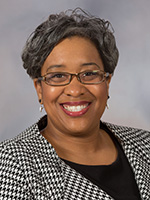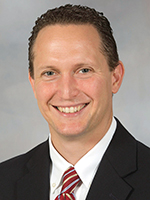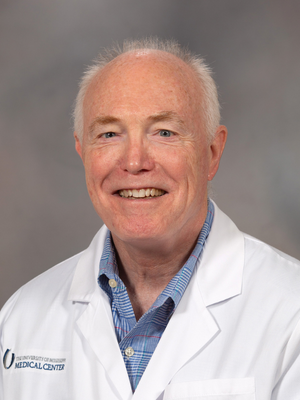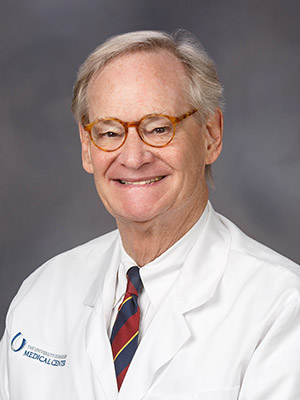Written in stone: UMMC to commemorate pandemic experience

About 200 ornamental stones cover the altar table in the chapel of the University of Mississippi Medical Center – one for every patient lost to COVID-19.
There is hardly room for more stones on the table’s surface; soon, when more are added, they’ll have to be stacked.
While the display is a reminder of the pandemic’s disturbing toll, it’s also an acknowledgement of the dignity and worth of each patient.

“Each stone is unique,” said Chaplain Doris Whitaker, director of pastoral services at UMMC. “Just as no life is identical to another life.”
Starting at noon Thursday, those lives will be remembered during a virtual memorial ceremony staged in the University Hospital Chapel: “Through Shadow and Light, Reflections on Our COVID-19 Journey.”
UMMC employees and students are invited to join the live-streamed event, at umc.edu/COVID-reflections, which will be recorded and made available after the fact. It promises to be a celebration as much as a remembrance, a chance to give thanks for the 1,500 or so patients UMMC providers have restored to their lives and families, and to connect with those families as well.
And it’s an occasion to honor the Medical Center staff, especially the front-line caregivers who have met the challenges of the pandemic with courage and grace.

“It’s a time to catch our breath,” said Dr. Joshua Mann, professor and chair of the Department of Preventive Medicine, one of the opening speakers, along with Whitaker and Dr. LouAnn Woodward, vice chancellor for health affairs and dean of the School of Medicine.
“We’re hoping that as we reflect on everything that’s happened over the past several months, we will realize how much we’ve accomplished and maybe take a little time to process the grief we have for the people lost to the infection,” said Mann, who is also director of the Office of Well-being
It’s an opportunity to focus on “the important role we have to help each other get through this trying time,” said Mann, who evoked the experience of Dr. Viktor Frankl, a psychiatrist and World War II concentration camp survivor.
“As he observed his fellow prisoners, Dr. Frankl came to believe that those who were better able to cope with the horrors of the camps had a stronger appreciation for what made their lives meaningful.”
At UMMC, it was Dr. Michael Stefanek who first proposed a COVID-19 memorial.

“That was a few months ago, when we thought the pandemic wouldn’t last this long,” said Stefanek, professor of psychiatry and human behavior, professor of population health science, and associate director of the Cancer Control, Epidemiology and Disparities Program of the UMMC Cancer Center and Research Institute.
“We thought the virus might be past us by mid-summer and the deaths would be behind us; unfortunately, that hasn’t happened. It became clear after time that we don’t have an end in sight.
“One of the things I was struck by, even at the beginning, was how anonymous it all was. With tragedies such as plane crashes, you often see faces and stories in the news, but with the continuing death tolls each day from the virus, all we had were these numbers.
“Then add to that the process of dying from COVID: You often don’t have your family with you; your loved ones aren’t there. So having an observance is a way for us to express our sorrow and our resolve to remember the people we have lost, and to do so beyond this one memorial service.
“My hope is it’s going to be an ongoing way to remember.”
Using stones to remember the patients was Hospital Chaplain Linda McComb’s idea, Whitaker said.
“We may not know each person’s name, but it’s important to mark the life that was here,” she said.
Marking the lives of Medical Center patients who have died is a bittersweet gesture familiar to Dr. Keith Mansel, professor of medicine, and director of palliative and support care services at UMMC.

“Every Friday morning, our palliative care team has a time of bereavement and remembrance, often with other caregivers who have worked with the patients,” said Mansel, one of the memorial event speakers.
“We use stories and narratives about the patients we have lost. We give people the space to talk about their emotions; I’m amazed at how healing that can be, the healing power of stories.
“This memorial observance can also help us deal with our own grief and sadness, because we’ve all continued to grieve over the past six months.
“The isolation from loved ones who are critically ill has been particularly challenging and burdensome for patients, families, and health care professionals. Yet, through all the suffering, I am encouraged by the strength and perseverance of the human spirit.
“Almost to the person, we have been greeted with graciousness, kindness, and gratitude, for which I am deeply thankful.”


